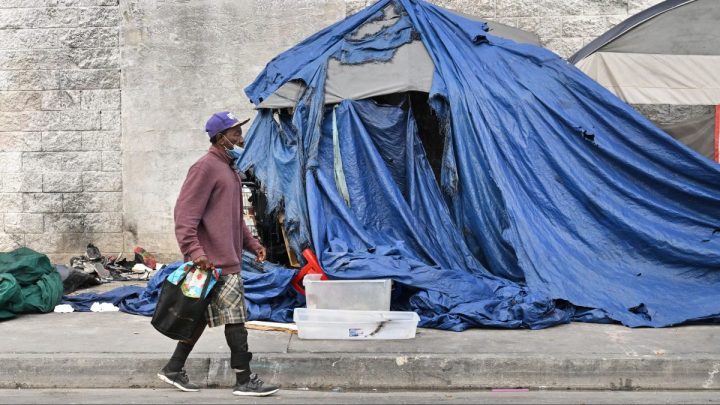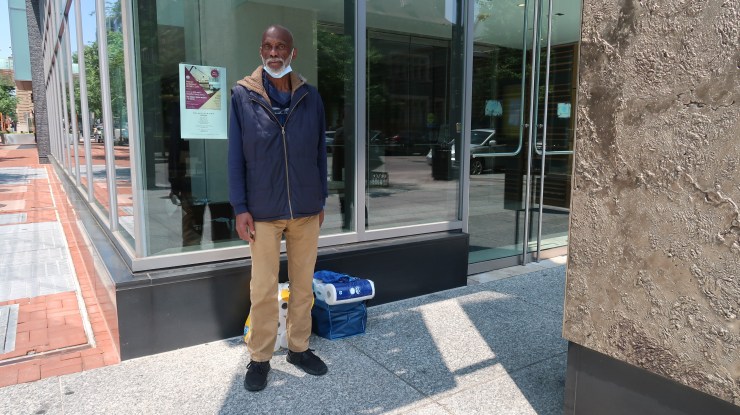
Mental illness plays a complicated role in the homelessness crisis
Mental illness plays a complicated role in the homelessness crisis

Advocates will quickly tell you that the main cause of homelessness is the affordable housing shortage. But mental illness can also play a role. More than 20% of unhoused people have a serious mental health condition, according to the National Alliance on Mental Illness. That’s compared to 5.5% for the general population.
“People who have certain disabling conditions — mental health disability, substance use problems — are at higher risk of losing out in tight housing markets, so they are more likely to become homeless,” said Dr. Margot Kushel, who runs the Benioff Homelessness and Housing Initiative at the University of California, San Francisco.
Without stable housing, Kushel said, managing mental illness becomes almost impossible.
“Homelessness is devastating to one’s mental health,” she said. “The constant violence that people are exposed to … the lack of sleep, the stress and uncertainty, the humiliation — all of these worsen people’s mental health. And homelessness really limits people’s access to treatment.”
That’s something Grace Lee sees while walking the streets of Washington, D.C., doing outreach for the nonprofit Pathways to Housing.

“Unfortunately, a lot of our clients do have mental health issues,” Lee said. “So it’s one thing if you and I have depression or bipolar or whatever. We just go to the doctor. When you’re homeless, where do you go? What do you do?”
Lee helps the people she encounters get signed up for Medicaid, food assistance and free phones, all while working to transition them into stable housing.
“When you’re homeless, [mental illness] kind of takes the back burner,” she said. “All they’re concerned about is their next meal, how they’re going to pay for that phone or whatever is the issue of the day.”
One of Lee’s clients, Charles Gregg, has been homeless in D.C. for about two years. He said treating his post-traumatic stress disorder and depression isn’t as much a priority for him as trying to get housing.
But Gregg said the stress of being homeless doesn’t help his conditions.
“Nobody is the same way all the time, even though you try to be. But sometimes things happen that cause you to act other than you normally would. And so sometimes, that’s attributed to my PTSD,” Gregg said. “Because sometimes people say something or do something, and … when I get excited, sometimes I talk real loud. … And I don’t do it on purpose, but it’s just the way it comes out.”

Pathways to Housing CEO Christy Respress said getting people into housing not only provides a foundation for treating mental illness, but it can reduce other costs for the broader community.
“Once people move into housing with the right support services,” Respress said, “their interaction with the legal systems go down. Their interactions with the ERs and hospital emergency rooms, the psychiatric emergency rooms, goes down.”
And using those services, Kushel of the Benioff initiative said, is much more costly over time than providing people with a place to live and the services to keep them there.
There’s a lot happening in the world. Through it all, Marketplace is here for you.
You rely on Marketplace to break down the world’s events and tell you how it affects you in a fact-based, approachable way. We rely on your financial support to keep making that possible.
Your donation today powers the independent journalism that you rely on. For just $5/month, you can help sustain Marketplace so we can keep reporting on the things that matter to you.

















